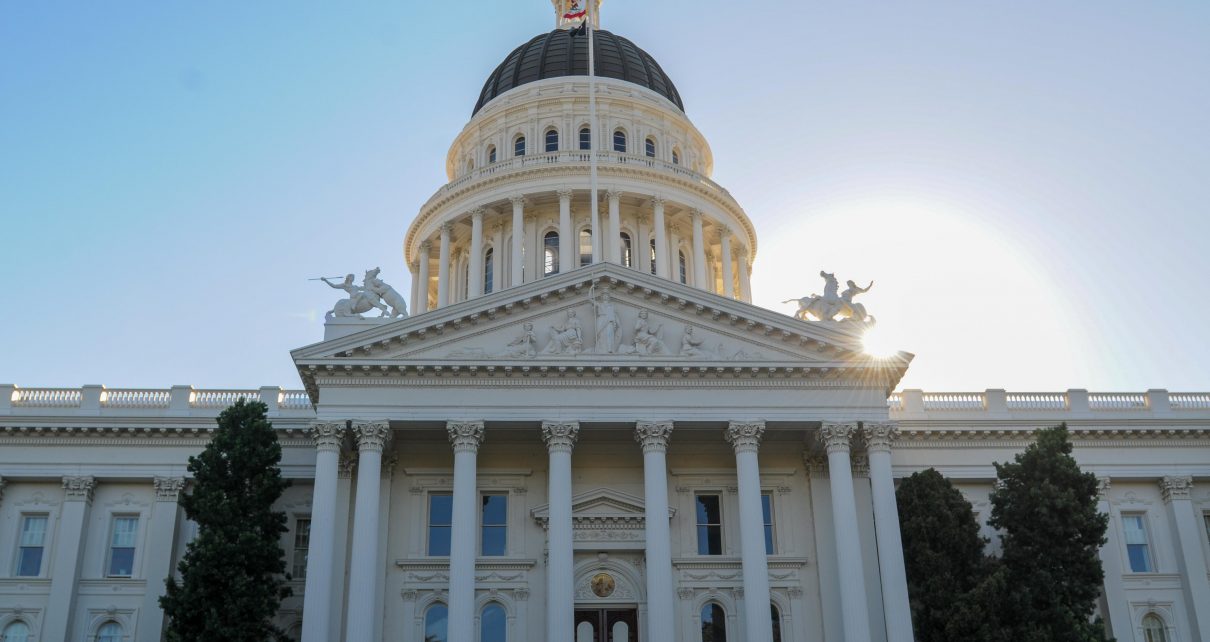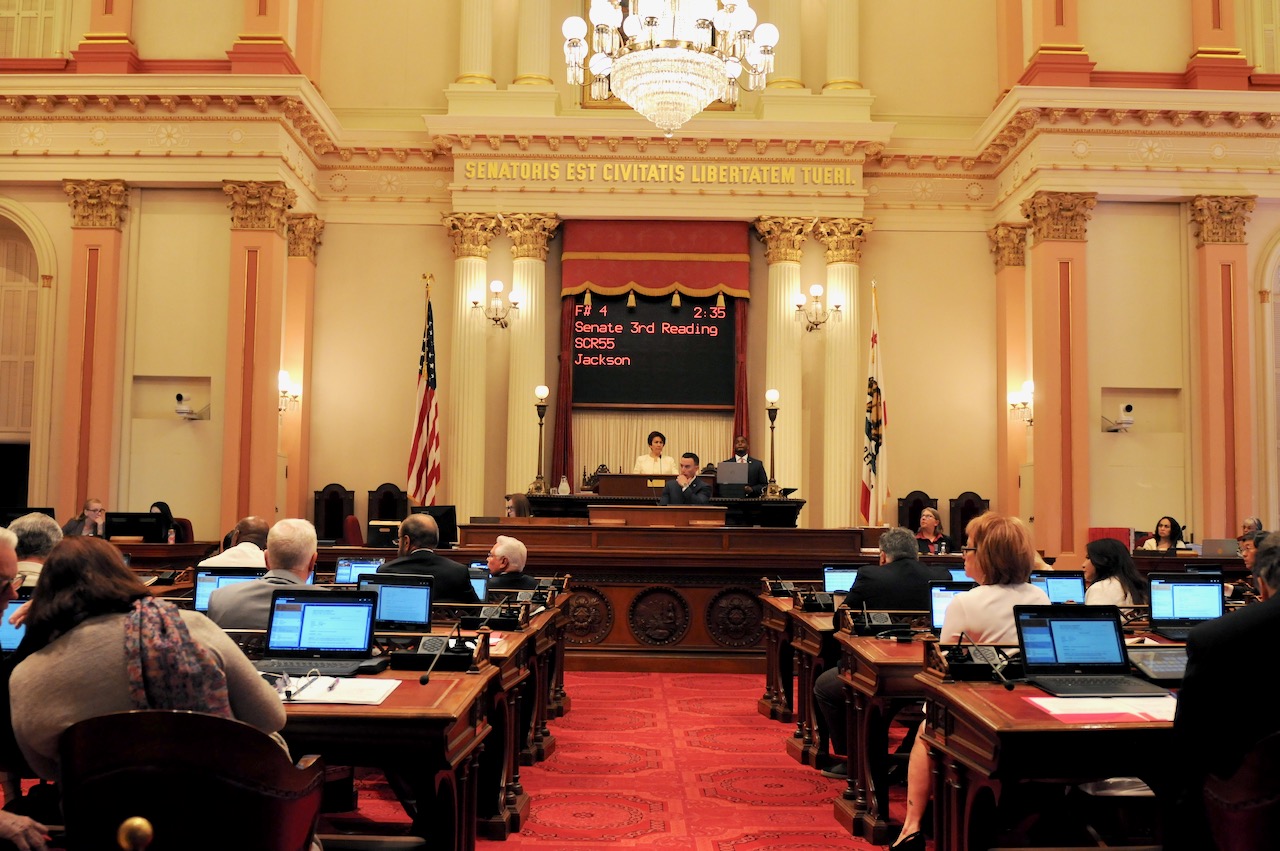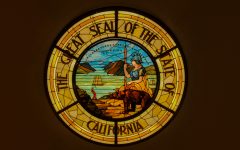
California State Capitol. (Photo: Kevin Sanders for California Globe)
Prohibitions and Campaign Committees in California’s Political Reform Act
Prohibits contributions from being commingled with the personal funds of the recipient or any other person
By Chris Micheli, January 22, 2022 3:08 pm
California’s Political Reform Act requires certain campaign disclosures be made pursuant to Chapter 4 of Title 9 of the Government Code. Article 3 of Chapter 4 is titled “Prohibitions” and contains Government Code Section 84300 – 84310. Section 84300(a) prohibits any contribution of $100 or more to be made or received in cash. Section 84300(b) prohibits any expenditure of $100 or more to be made in cash.
Section 84300(c) prohibits contributions of $100 or more other than an in-kind contribution from being made unless in the form of a written instrument containing the name of the donor and the name of the payee and drawn from the account of the donor or the intermediary. Section 84300(d) specifies that the value of all in-kind contributions of $100 or more must be reported in writing to the recipient upon the request in writing of the recipient.
Section 84301 prohibits any contribution from being made, directly or indirectly, by any person in a name other than the name by which such person is identified for legal purposes. Section 84302 prohibits a person from making a contribution on behalf of another, or while acting as the intermediary or agent of another, without disclosing to the recipient of the contribution both that person’s own full name and street address, occupation, and the name of that person’s employer, if any.
Section 84303 prohibits an expenditure of $500 or more from being made, other than for overhead or normal operating expenses, by an agent or independent contractor, including, but not limited to, an advertising agency, on behalf of or for the benefit of a candidate or committee unless it is reported by the candidate or committee as if the expenditure were made directly by the candidate or committee.
Section 84304 prohibits a person from making an anonymous contribution or contributions to a candidate, committee or any other person totaling $100 or more in a calendar year. An anonymous contribution of $100 or more cannot be kept by the intended recipient but instead must be promptly paid to the Secretary of State for deposit in the General Fund of the state.
Section 84305 prohibits a candidate, candidate controlled committee established for an elective office for the controlling candidate, or political party committee from sending a mass mailing unless the name, street address, and city of the candidate or committee are shown on the outside of each piece of mail in the mass mailing and on at least one of the inserts included within each piece of mail of the mailing in no less than 6-point type that is in a color or print that contrasts with the background so as to be easily legible.
Section 84305.5 provides that a slate mailer organization or committee primarily formed to support or oppose one or more ballot measures must include:
- The name, street address, and city of the slate mailer organization or committee primarily formed to support or oppose one or more ballot measures are shown on the outside of each piece of slate mail and on at least one of the inserts included with each piece of slate mail in no less than 8-point roman type which shall be in a color or print which contrasts with the background so as to be easily legible.
- At the top or bottom of the front side or surface of at least one insert or at the top or bottom of one side or surface of a postcard or other self-mailer, there is a notice in at least 8-point roman boldface type, which shall be in a color or print which contrasts with the background so as to be easily legible, and in a printed or drawn box and set apart from any other printed matter. The notice must consist of the following statement:
|
NOTICE TO VOTERS |
||
|
THIS DOCUMENT WAS PREPARED BY (name of slate mailer organization or committee primarily formed to support or oppose one or more ballot measures), NOT AN OFFICIAL POLITICAL PARTY ORGANIZATION. Appearance in this mailer does not necessarily imply endorsement of others appearing in this mailer, nor does it imply endorsement of, or opposition to, any issues set forth in this mailer. Appearance is paid for and authorized by each candidate and ballot measure which is designated by an *. |
||
- The name, street address, and city of the slate mailer organization or committee primarily formed to support or oppose one or more ballot measures as required and the notice required may appear on the same side or surface of an insert.
- Each candidate and each ballot measure that has paid to appear in the slate mailer is designated by an *. Any candidate or ballot measure that has not paid to appear in the slate mailer is not designated by an *.
- The name of any candidate appearing in the slate mailer who is a member of a political party differing from the political party which the mailer appears by representation or indicia to represent is accompanied, immediately below the name, by the party designation of the candidate, in no less than 9-point roman type which shall be in a color or print that contrasts with the background so as to be easily legible. The designation shall not be required in the case of candidates for nonpartisan office.
Section 84305.7 provides that, if a slate mailer organization sends a slate mailer or other mass mailing that displays a logo, insignia, emblem, or trademark that is identical or substantially similar to the logo, insignia, emblem, or trademark of a governmental agency, and that would reasonably be understood to imply the participation or endorsement of that governmental agency, the slate mailer organization must obtain express written consent from the governmental agency associated with the logo, insignia, emblem, or trademark prior to using the logo, insignia, emblem, or trademark in the slate mailer or other mass mailing.
In addition, a disclosure must include one of the following statements:
- If the slate mailer organization represents public safety personnel members: “This organization represents ____ public safety personnel.” The slate mailer organization is to fill in the blank part of the statement with the number of public safety personnel members it represents.
- If the slate mailer organization does not represent public safety personnel members: “This organization does not represent any public safety personnel.”
Section 84306 requires all contributions received by a person acting as an agent of a candidate to be reported promptly to the candidate or any of the candidate’s designated agents. All contributions received by a person acting as an agent of a committee must be reported promptly to the committee’s treasurer or any of the treasurer’s designated agents.
Section 84307 prohibits contributions from being commingled with the personal funds of the recipient or any other person. Section 84307.5 specifies that a spouse or domestic partner of an elected officer or a candidate for elective office cannot receive, in exchange for services rendered, compensation from campaign funds held by a controlled committee of the elected officer or candidate for elective office.
Section 84308 provides definitions for the following terms: “party,” “participant,” “agency,” “officer,” “license, permit, or other entitlement for use,” and “contribution.”
Section 84309 prohibits a person from receiving or personally delivering or attempting to deliver a contribution in the State Capitol, in any state office building, or in any office for which the state pays the majority of the rent other than a legislative district office. This section also defines the terms “personally deliver” and “receive”.
Section 84310 prohibits a candidate, candidate controlled committee established for an elective office for the controlling candidate, political party committee, or slate mailer organization from expending campaign funds, directly or indirectly, to pay for telephone calls that are similar in nature and aggregate 500 or more in number, made by an individual, or individuals, or by electronic means and that advocate support of, or opposition to, a candidate, ballot measure, or both, unless during the course of each call the name of the candidate, candidate controlled committee established for an elective office for the controlling candidate, political party committee, or slate mailer organization that authorized or paid for the call is disclosed to the recipient of the call.
Finally, campaign and ballot measure committees are prohibited from contracting with any phone bank vendor that does not disclose the information required to be disclosed. A candidate, committee, or slate mailer organization that pays for telephone calls must maintain a record of the script of the call for the period of time set forth in Section 84104.
- Corporations Commissioner Powers - February 27, 2026
- Death Deeds in California - February 27, 2026
- Sources of Law - February 26, 2026




